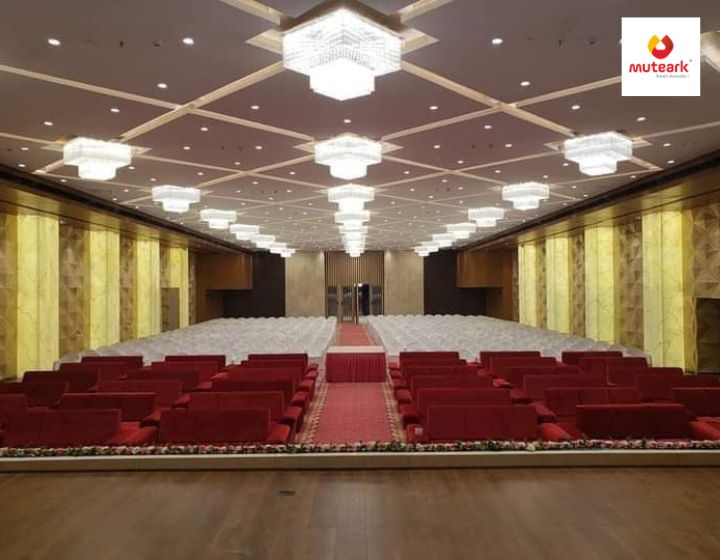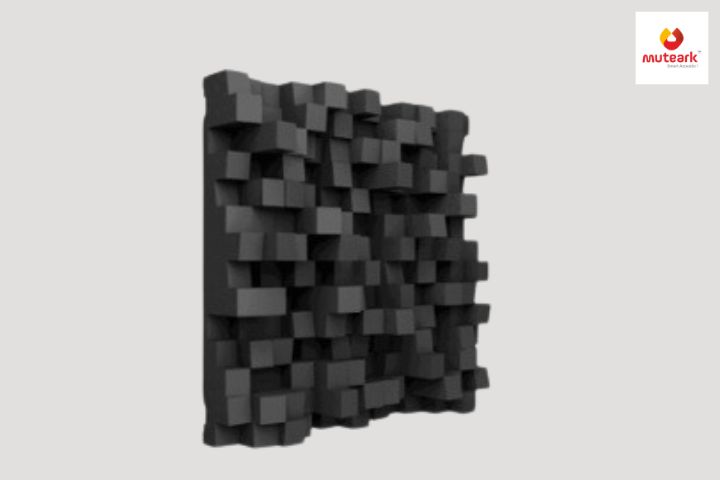Diffusers
If the noise or distortion you are hearing is caused by slap echo and comb filtering in musical detail, vocal clarity and response cancellations, then you should choose a sound diffuser product. Sound Diffuser products give your room a sense of spaciousness by spreading the sound energy into different planes or fields addressing distortion issues without any energy conversion and sound absorption in home theater, cinemas and music studio.
Reflection Phase Gratings
Reflection Phase Gratings consist of a panel divided into wells, or grates, of equal width and variable depth. These grates can be one-dimensional or two-dimensional, meaning they diffuse sound across one plane (left-right) or two planes (left-right, up-down).
Geometric Diffusors
Geometric Diffusors are simple reflective surfaces bent to a convex curved surface. This shape provides a different angle of reflection depending on the angle of incidence, providing an acoustic scattering effect and measurable diffusion.

Interested? Let's get in touch!
Contact us for all your noise complaints. We always welcome any questions and comments.
FAQ
What materials absorb sound waves?
In general, soft, pliable, or porous materials (like cloths) serve as good acoustic insulators - absorbing most sound, whereas dense, hard, impenetrable materials (such as metals) reflect most. How well a room absorbs sound is quantified by the effective absorption area of the walls, also named total absorption area.
Does frequency affect sound absorption?
The amount of absorption, reflection, and transmission of the sound is different for every frequency. For example, a high frequency sound with a short wavelength can be absorbed by a thinner piece of material, while lower frequency sounds are not absorbed, due to their longer wavelength.
Why is absorption of sound important?
Adding sound absorption to your space can make all the difference. Absorption will lessen the echo and reverberation within the room and improve speech intelligibility and overall clarity.
Why some materials are better at absorbing sound rather than reflecting it?
Materials which have higher densities tend to reflect more sound than they absorb (such as concrete or solid plywood). Materials with lower densities tend to absorb more sound (such as melamine foam or cork). Also, thicker materials tend to absorb a wider range of sound frequencies than thinner materials.
Testimonials
We always aim to fulfill our clients aspirations by providing custom tailored solutions.
As Architect, Design & ideas as par of aesthetics but sometime their are experiential quility required / demands improvement. So, Accostics is one the important aspects, so we highly recommend Experts like Mihirbhai & team. They will Analysis of problem provide effective & maintenance free,fire resistance, weather resistance solution as per requirement.
The product is very effective and is highly recommended for any offices.
Before Treatment: The space was very loud. Client complained fairly often of the noise level. After Treatment: The space is much quieter. Employees at the same table can now carry on a conversation. Thanks to you mr.mihir for ur support.
Perfect solution for acoustic problem for home and office.
Got my long term pain solved by getting right consulting from them
Some businesses are too focused on making the sale, and don’t pay nearly enough attention to satisfying customers’ wants and needs. Your product and service are awesome... Really satisfying...
Product management really is the fusion between technology, what engineers do and the business side. I strongly believe that They care more.

